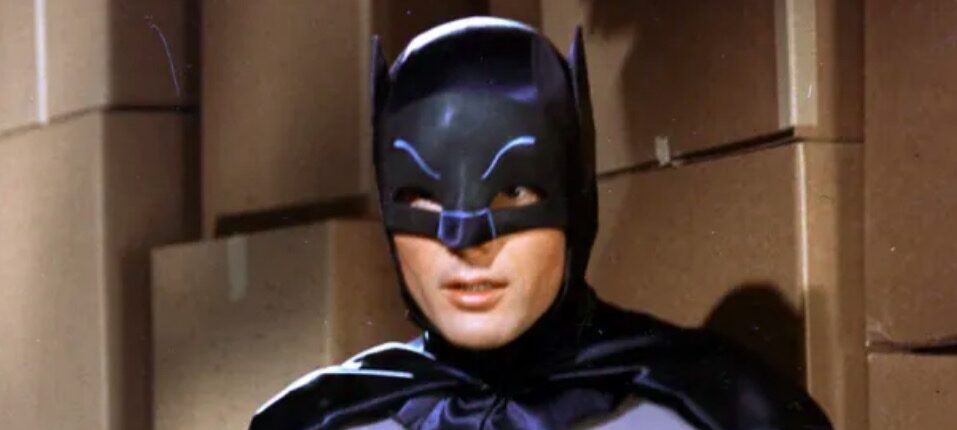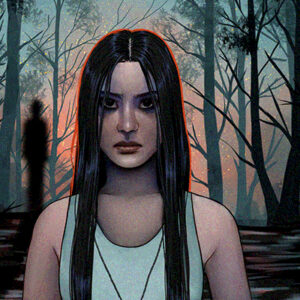I met Adam West in the summer of 2008, at a fundraising gala on the North Shore of Long Island to which my parents had managed to snag tickets for our family of four.
The event was being hosted by a local historic institution, celebrating a mammoth anniversary with a benefit to raise money for the next chapter of its existence. To make the commemoration even more special, celebrities from classic television shows were promised to be there, as well. And while my parents were far, far from the “gala” type, they were definitely of the variety that attended, and frequently took their children to, events organized around the popular culture of bygone eras (which is the short version of the story about how my eight-year-old sister wound up singing a duet with Keely Smith to “The Saints Come Marchin’ In” at the Regency Hotel, many years earlier). So, if there was even the slightest chance that we could run into Larry Hagman or Stefanie Powers at this thing, we’d be there, with bells on. I was sixteen, my sister was thirteen, and we were nearly incandescent with excitement.
That weekend, a tempest had struck the North Shore, and after a day of ironing and spraying my hair down to a fraction of its normal mass, we drove through torrents along the coastal roads to make it. Soon, my family and I emerged from the pelting rain and the viscid humidity, to the Gold Coast mansion that was serving as the party grounds.
We made our way to the tent where the dinner and dancing, and, more likely, photograph-taking and autograph-signing, would occur. My family, dressed up and traveling together throughout the space in an enthusiastic clump, wound in our bloc amid the circular tables and tent poles. That’s when we saw Adam West. He was the first celebrity I saw that night, and easily the coolest.
He was taller than I expected, and stood so straight that he was perpendicular to the modular dance floor tile—a ramrod in a tuxedo with glinting wire glasses. He was standing in the corner, finishing up a conversation with an eager stranger, and my father suggested, after gasping and tapping my sister and me on the shoulders, that we all go over and introduce ourselves.
“Hello, Mr. West,” said my father, politely. “We wanted to come and say hello.”
Adam West smiled down on us, and extended his hand. He asked us, in his famously low, crinkling voice, if we knew him better from his roles on Family Guy, King of Queens, or The Fairly Odd Parents. I don’t recall him mentioning Batman—either the comic live-action 1966 film or subsequent zany television series, from 1966-1968, in which he played the eponymous hero—and if this is the case, perhaps it is because he assumed we were too young to have seen them. And we were: I was sixteen and my sister was thirteen (although she looked about nine). And while we did sometimes watch Batman reruns via my grandparents’ satellite dish, I honestly think we knew him better from his guest-starring role on an episode of Kim Possible, in which he played an elderly man who moonlighted as a masked crimefighter known as “The Fearless Ferret.”
And as we began to rattle off our familiarity with his television oeuvre, my father was suddenly hit by an idea. Turning to my sister, he suggested brightly, “You should ask Mr. West if it’s all right with him if you can do your impression of him!”
I should also add, though, that he wasn’t wrong. My sister had, during this time in her life, been cultivating a very solid impression of Adam West (made doubly impressive, I think, by the fact that she was an extremely tiny preteen girl). Additionally, he was right in assuming it would be an amazing experience for us all if she busted it out, to his face.
Although she had been working on this impression assiduously (for no clear reason), I (and, I think, Adam West), could tell from the flicker of mortification that blinked over her face that she had no desire to make this talent known at this particular time. My dad, though, was beaming with pride. He is, to his credit, an extremely supportive father.
“It’s okay, Dad,” said my sister, gently. I think she genuinely appreciated his excitement about her talent—but then perhaps valued it slightly less when my dad, still beaming, encouraged her a second time. Adam West was smiling politely—waiting, uncertain.
So she did it. She repeated a line that she had heard Adam West say on The Fairly Odd Parents, in his exact cadence. It was pretty good, especially given the circumstances. He, honestly, seemed a bit surprised.
Upon reading that Adam West passed away a few days ago at the age of eighty-eight, I thought of this interaction—not only because it is a charming family memory in which West demonstrated both his kindness to fans and general good-humor about his entire career, but also because it occurred to me that, if my sister, now an adult (and still able to do that impression), had met West more recently, he could have asked her if she was familiar with his additional work on such shows as 30 Rock, The Big Bang Theory, Robot Chicken, or Powerless—all of which involved, much like the titles he listed to us in 2008, playing a version of himself, or a character obviously informed by his most famous part.
It is a fascinating legacy, I think, to be known for so many roles, all inspired by or in light of one big one. My parents had grown up watching Batman, and wanted to meet West because they had enjoyed seeing him on television, as kids. Yet, as suggested by his omission of Batman from the list of shows he surmised my sister and I might have seen him in, West may have figured that he would be less able to reach my generation as “Batman,” than as the recurring role of “the man who once played Batman.” And this is actually twofold—he is known to a new crowd as, say, “the mayor in Family Guy, the man who played Batman,” just as he is known to new audiences interested in the character as one of the first Batman actors in a long line of Batman actors. His presence in that franchise, now literally absent from it, exists in reminders elsewhere. As his most famous role continues to be played by others, he reproduces his own connection to acting in that role, by continuing to play the actor who played that role.
But it is not only this. Batman, West’s original role, was rather unique to the canon that bears its name for its combination of action and hokeyness, of badassness and tomfoolery, of awesome gadgets and goofy costumes. And West’s career since has only magnified this relationship: in an era of brooding, existential, bug-budget superhero movies, Adam West’s perpetuation of his own role extends the camp of his creation. As the years moved on, as the cinematic Batman’s sense of humor decayed (off-and-on: the grim Tim Burton adaptation eventually yielded Batman & Robin, in which Arnold Schwarzenegger played Mr. Freeze and, we must never forget, threatened to “kick some ice”), the more ubiquitous was West, with his impeccable comic timing and buoyant penchant for reflexivity, bringing back the legacy of his Batman: reminding us in other, new locations, about the necessity of taking nothing—even superheroes, or actors—too seriously.
So it is amusing, to me, that my sister reproduced Adam West to his face—imitated a man who has never stopped imitating himself, and who, in fact, made a career out of doing so.
And, I think it was amusing to him, too. He looked at my little sister for a long time, after her brief impression ended in a self-conscious blush. And he looked at my dad, grinning delightedly, and my mom, who I think may have been chuckling at the whole thing. And then he looked at me, and by this time, the humidity had teased up my once-styled hair into a bubble helmet around my head, making me look, I think, like Toad from Mario Bros.
Adam West looked back at my father, then. “You have,” he told him, theatrically and gently, as if trying not to smile, himself, “an… interesting family.”
And then Adam West, man of one mask but a thousand (sometimes animated) versions of the same face, parted politely from us, and we thanked him for his company, and indulgence. And then my dad complimented my sister on her impression—for her precision in diction, but mostly for being such a generous, good sport and doing it in the first place, which, when I think about it, seems to have been another way to imitate Adam West, all by itself.

















